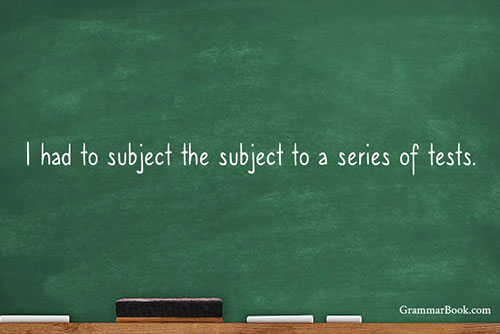|
We know that a noun in English is a person, place, or thing that functions as a subject or an object in a sentence. A noun also can operate as a subject or object complement or as an appositive.
Nouns can further be grouped into types of nouns:
| common nouns (concrete, abstract, collective) |
| proper nouns |
| countable nouns |
| uncountable nouns |
| compound nouns |
| possessive nouns |
We'll take a look at each in helping to make your mastery of nouns even greater. Note that a noun can be more than one type (e.g., rope is both a common concrete noun and a countable noun).
Common Nouns
A common noun refers to the general name or category of something or someone, such as girl, desk, teacher, snow, and airplane. The majority of nouns are common nouns.
Examples
The boy will go to the river to try to catch some fish.
The teachers are meeting to discuss the curriculum. |
Common nouns are further categorized as concrete, abstract, and collective nouns.
Common Nouns: Concrete
A concrete noun is one that is perceived by the senses as tangible and real. We can see, touch, taste, smell, or hear what concrete nouns represent: rope, soup, bell, briefcase, friend.
Examples
Please set your plate on the table so I can serve you some cake.
The girls are discussing which outfits to wear to school tomorrow. |
Each underlined noun is a concrete representation of something we can physically substantiate.
Common Nouns: Abstract
An abstract noun is a word for something the senses cannot directly perceive. It is a concept, quality, feeling, idea, or condition. While we cannot physically substantiate it, we know it exists: love, faith, leadership, marriage, intelligence.
Examples
Alan showed humility in telling the truth about the lie he had told.
A little bit of humor can lead to greater happiness. |
Each underlined noun is an abstraction of something we understand beyond our senses.
Common Nouns: Collective
A collective noun represents a group or collection of people or things: family, team, bunch, bundle, stack.
Examples
The review team has been working through the stack of reports since this morning.
A family of geese is swimming toward the cluster of weeds near the edge of the pond. |
As shown in these examples, many collective nouns in American English are treated as singular. However, some writers may choose to make a collective noun plural depending on whether the noun is perceived as a single unit or a plurality. An image of plurality will often be influenced by a modifying prepositional phrase.
Examples
The group is setting up the exhibits for the science fair.
The group of students are (or is) setting up the exhibits for the science fair. |
In the first sentence, we clearly have a singular collective noun: We understand the reference is to a unit. In the second sentence, either a singular or plural verb would be acceptable. It would depend on whether the writer views the students as separate individuals or as one collective entity.
Proper Nouns
A proper noun is the opposite of a common noun. Unlike a common noun, which is a general reference, a proper noun identifies a specific person, place, or thing. A proper noun is always capitalized: Sophia, London, Saturday, the White House, Plymouth Rock.
Examples
Josephine is going to Thailand to study Buddhism.
Mikael was born on Valentine's Day, which in 1968 was a Wednesday. |
Countable Nouns
Countable nouns are nouns we can quantify: one ball, ten jackets, two hundred tickets, six thousand people. We can also express concepts of quantity for countable nouns with indefinite pronouns: an object, few clouds, some books.
Examples
This morning I took an aspirin and rested for several hours.
Please fill that basket with one apple, three pears, and six oranges. |
Uncountable Nouns
Uncountable nouns—also referred to as mass nouns—are those that cannot be quantified by number: light, money, counseling, electricity. Because they are not counted, they are singular.
Examples
The information explains more about the furniture you bought.
Annika's latest art focuses on the shifting shapes of sand. |
Compound Nouns
A compound noun is one formed of two or more words together. It might include a space (train station), a hyphen or hyphens (twelve-pack, daughter-in-law), or no space or hyphens (mailbox).
Examples
Please remember that checkout [or check-out] is at three-thirty.
We finished the photo shoot with pictures on a merry-go-round at sunset. |
Possessive Nouns
A possessive noun is one that possesses another noun. It is identified by its apostrophe: dog's bone, dealer's choice, tire's treads.
Examples
The Perezes' preference will help us determine what the room's color should be.
Katya is donating a week's pay to help support the children's charity. |
Related Topics
Collecting the Truth About Collective Nouns
Irregular Plural Nouns
What Is a Noun Phrase?
|





